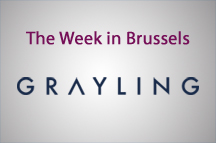 “Brexit means Brexit” we are told, but three months after the referendum and we are still no closer to knowing what the UK government really wants from the negotiations.
“Brexit means Brexit” we are told, but three months after the referendum and we are still no closer to knowing what the UK government really wants from the negotiations.
The Cabinet appears split on whether to retain membership of the Single Market, but there seems to be agreement around the need to control the country’s borders. With immigration being such an emotive issue for Leave voters, this is something the current government cannot be seen to ignore.
Yet membership of the Single Market will not be possible if the UK refuses to sign up to the free movement of people. This much has been made clear by representatives of both the EU institutions and its Member States.
Staying in the Single Market will bring more stability; the country will have to abide by all current legislation governing the Single Market, the City of London will retain passporting rights enabling banks to operate across the rest of Europe, and UK citizens will continue to enjoy the benefits of free movement.
Classic EU fudge
Yet in such a scenario, the UK will have no seat at the decision-making table and will have to abide by rulings made by the European Court of Justice, whilst probably continuing to pay into the EU a not inconsiderable sum.
Such a scenario is anathema to any Leave voter wooed by the cry to “take back control”.
There are other models on which to base an agreement – the EU-Switzerland deal, with its multiplicity of complex bilateral agreements – not forgetting free movement; the Norway deal, which would involve joining EFTA and the EEA (but again, accept free movement), or the Canada deal, marked by a bilateral trade agreement where most goods have no duties – albeit with hundreds of exceptions.
So what is the most likely outcome? Probably a classic EU fudge, an EU-UK deal which has a bit of all the above examples, but with countless opt-outs, sunset clauses, exceptions, etc. Brexit won’t end once a deal is done – in fact, the work will only just be beginning.
Retention of status quo desired – but is it possible?
In conversations with business across a range of sectors, it seems clear that retaining the status quo is the best possible outcome. If a given company can continue to trade as it currently does once the negotiations are over, all the better.
Some companies even want specific sectoral agreements to be finalised at the start, providing them with the certainty that whatever the final deal may look like, their industry is safeguarded from disruption.
It is too early to say whether Brexit is bad for business, but business needs to get organised and work both channels – London and Brussels. The Japanese government beat everyone to the punch with its list of conditions it wants to see from the negotiations – it wouldn’t hurt if business does the same.
Of course, Brexit is both a threat and an opportunity. Much work needs to be done, uncertainties abound, but don’t get left behind once the real fun of the negotiations begin. It’s time for business to get organised.
Our Grayling Brexit Unit brings together the very best consultants from across the Grayling network and includes those who have direct experience of working alongside the leading political figures charged with negotiating Brexit in London and Brussels. The Grayling Brexit Unit is here to support, guide and inform the success of your business and identify how the political dynamics will change as a result of Brexit in both London and Brussels.














